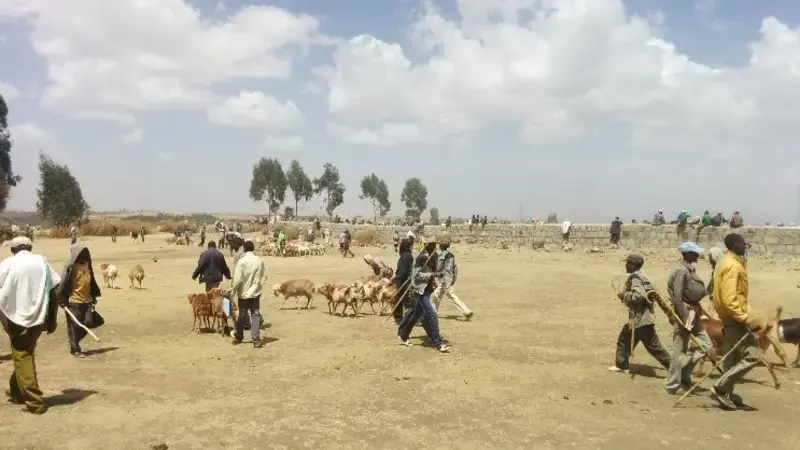IFPRI and ICARDA studies find policy-induced market distortions along agricultural value chains

ICARDA’s Social, Economic, and Policy (SEP) Research Team plays a crucial role in analyzing our innovations’ socioeconomic viability, adoption, scaling up, and impact on poverty alleviation, food security, systems resilience, and social inclusiveness.
A recent policy brief published by The International Food Policy Research Institute (IFPRI) summarizes the results of two studies conducted by IFPRI and ICARDA scientists that focused on the improvement of Ethiopian and Nigerian value chains around palm oil, cocoa, and small ruminants. The studies were conducted using nominal rates of protection (NRP), which measures how policy can induce market distortions in agricultural commodity prices at the producers’ level.
The studies showed that high market access costs along value chains can stifle the development of such chains and that NRP at the farmgate varies between administrative regions. High access costs reflect inefficiencies in moving commodities from producers to consumers along the value chain; for example, high transportation costs due to poor infrastructure and high fees due to the market power of traders increase the difference between consumer and producer prices. The studies also showed that policy-induced distortions, such as those caused by taxes, subsidies, and minimum support prices, are high, and that the NRPs at the farm gate and the retail market for both sheep and goats can be negative across time, revealing a large deviation of both producer and retailer prices from the comparable export prices.
The studies conclude that producers and consumers can benefit from policies that increase access to inputs, enhance market access, and improve supply chain linkages. A study of policy distortions along the value chain is required to do this efficiently and without overlapping and conflicting results, but the type of analysis provided in these two studies can aid policymakers in deciding where along the value chain to focus their interventions.
The project was led by Girma Kassie (Ph.D.), a Senior Agricultural Market Economist with the International Center for Agricultural Research in the Dry Areas (ICARDA); and Simla Tokgoz (Ph.D.) is a Research Fellow with IFPRI's Markets, Trade, and Institutions Division. is a Research Fellow with IFPRI's Markets, Trade, and Institutions Division.
This work was supported by the IFPRI-led CGIAR Research Program on Policies, Institutions, and Markets (PIM).
